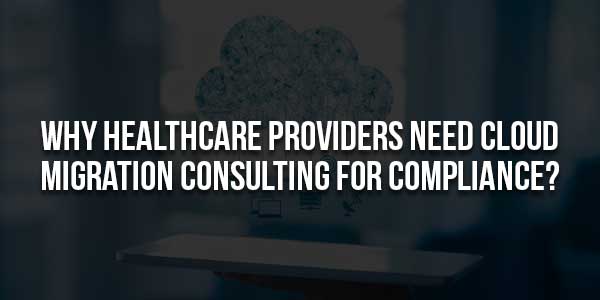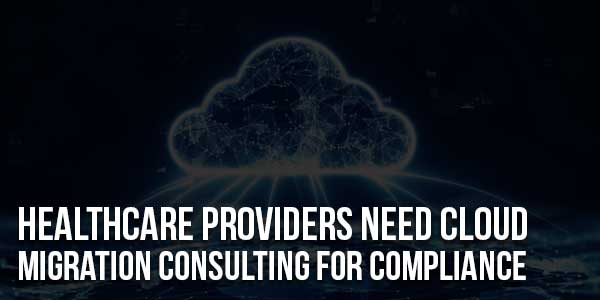
The healthcare industry is undergoing a digital revolution. From electronic health records (EHRs) to telemedicine, healthcare providers embrace digital tools to enhance patient care, streamline operations, and reduce costs. At the heart of this transformation is the cloud. However, migrating to the cloud is not as straightforward as flipping a switch, especially in a highly regulated environment like healthcare. This is where cloud migration consulting becomes essential.
Table of Contents
The Complexity of Healthcare Compliance:
Healthcare providers must adhere to stringent regulatory standards, including the Health Insurance Portability and Accountability Act (HIPAA), the General Data Protection Regulation (GDPR), and other local data protection laws. Non-compliance can result in severe penalties, legal consequences, and loss of patient trust.
Key Compliance Challenges in Healthcare
- Data Security and Privacy: Patient data is highly sensitive and a prime target for cyberattacks. Healthcare providers must ensure robust data protection measures.
- Data Sovereignty: Regulations often require that data be stored and processed within specific geographic boundaries.
- Audit Trails: Healthcare systems must maintain detailed logs to track data access and modifications.
- Interoperability: Systems must be able to securely exchange data with other platforms and providers.
Meeting these requirements demands a deep understanding of both regulatory frameworks and technological solutions, something most healthcare organisations may lack in-house.
What is Cloud Migration Consulting?
Cloud migration consulting involves expert guidance and strategic planning to move an organisation’s digital assets, such as data, applications, and systems, from on-premises infrastructure to the cloud. Consulting services typically include:
- Assessment of existing IT infrastructure
- Risk analysis and compliance audits
- Strategy development for secure cloud migration
- Selection of appropriate cloud platforms
- Implementation support and post-migration optimisation
Cloud Services Companies offering specialised consulting understand the healthcare sector’s unique needs and can provide tailored solutions to ensure a smooth and compliant transition.
Why Cloud Migration Matters for Healthcare Providers:
Enhanced Data Security:
Cloud platforms, when configured correctly, offer advanced security features such as encryption, identity and access management, and threat detection. Consultants ensure these features are properly implemented and aligned with compliance requirements.
Cost Efficiency:
While the initial migration may involve investment, cloud solutions reduce the need for expensive hardware, maintenance, and in-house IT staff. Consulting firms can help identify cost-saving opportunities and optimise resource usage.
Scalability and Flexibility:
Healthcare providers often face fluctuating data storage needs. Cloud environments can scale dynamically, accommodating growth without compromising performance or security. Consultants ensure that scaling strategies comply with regulatory requirements.
Business Continuity and Disaster Recovery:
Cloud-based systems can offer robust backup and disaster recovery solutions. Consultants help design architectures that ensure data resilience, minimising downtime in case of failures.
Compliance-Focused Benefits of Cloud Migration Consulting:
HIPAA Compliance:
HIPAA requires specific safeguards for protecting patient information. Cloud migration consultants ensure that:
- Data is encrypted in transit and at rest
- Access controls are in place
- Systems maintain detailed audit logs
- Business Associate Agreements (BAAs) are established with cloud vendors
GDPR Readiness:
For healthcare providers operating in or dealing with patients from the EU, GDPR compliance is non-negotiable. Cloud migration consultants assist in:
- Data anonymisation and minimisation
- Right to access and erasure implementation
- Breach notification procedures
Local and International Standards:
Apart from HIPAA and GDPR, healthcare providers may need to comply with country-specific regulations. Cloud Services Companies with global experience can navigate these complex requirements efficiently.

Choosing the Right Cloud Services Partner:
The success of cloud migration largely depends on the expertise of the consulting partner. Here are key attributes to look for:
Industry-Specific Experience:
Consultants with a proven track record in the healthcare sector understand the nuances of compliance, security, and patient care workflows.
Customization Capabilities:
One-size-fits-all approaches rarely work. A good consulting partner tailors solutions to fit the specific needs and goals of the healthcare organisation.
End-to-End Support:
From planning to post-migration optimisation, continuous support ensures that systems remain secure, compliant, and efficient.
Reputation and Reliability:
Check reviews, case studies, and client testimonials. A reputable firm brings peace of mind and accountability.
The Role of Cloud Services Companies:
Cloud Services Companies play a pivotal role in bridging the gap between healthcare IT challenges and modern technological solutions. By offering end-to-end consulting, implementation, and management services, these companies become strategic partners in digital transformation.
Rather than viewing cloud migration as a mere IT upgrade, forward-thinking healthcare providers recognise it as a strategic initiative that improves patient outcomes, operational efficiency, and regulatory readiness. Cloud Services Companies make this transformation not only possible but also compliant and sustainable.
Case Studies: Real-World Impact of Cloud Migration Consulting:
To understand the tangible benefits of cloud migration consulting, consider the case of a regional healthcare network that operated with outdated, siloed systems. After engaging a cloud migration consulting firm, the network was able to:
- Migrate patient records to a HIPAA-compliant cloud environment
- Integrate telemedicine services with real-time data access
- Automate compliance reporting to reduce administrative burden
- Achieve faster response times during emergencies due to centralised data access
Another example involves a global health research institute that needed to meet GDPR requirements. By partnering with a Cloud Services Company, the institute:
- Conducted a data inventory to identify risks
- Applied encryption and pseudonymization techniques
- Developed automated workflows for data subject requests
These examples illustrate how expert guidance can accelerate transformation while safeguarding against compliance risks.
Emerging Trends in Cloud Compliance for Healthcare
As technology continues to evolve, new trends are shaping the future of cloud compliance in healthcare:
- AI and Machine Learning: Predictive analytics can identify compliance risks before they become issues, allowing for proactive management.
- Zero Trust Architecture: A security model that verifies every access request, making systems more resilient to breaches.
- Multicloud and Hybrid Deployments: Combining public and private cloud solutions to meet diverse regulatory and operational needs.
- Continuous Compliance Monitoring: Real-time monitoring tools that detect non-compliance instantly and automate remediation.
Cloud Services Companies that keep pace with these innovations offer healthcare organisations a competitive edge.
Final Thoughts
Cloud migration in healthcare is inevitable, but doing it right is crucial. With the regulatory stakes so high, the guidance of seasoned cloud migration consultants can be the difference between costly compliance failures and a smooth, secure, and efficient digital transformation.
Healthcare providers must prioritise compliance at every step of their cloud journey. Partnering with experienced Cloud Services Companies ensures that they not only meet today’s regulatory requirements but are also prepared for the evolving landscape of digital healthcare.
As patient expectations and technological possibilities expand, healthcare providers must be agile, secure, and compliant. Cloud migration consulting is not just an IT decision—it’s a strategic imperative for future-ready care delivery.

 About the Author:
About the Author:












A helpful, simple article that provided a good overview of the key concepts. Thank you for sharing.
Welcome here and thanks for reading our article and sharing your view. This will be very helpful to us to let us motivate to provide you with more awesome and valuable content from a different mind. Thanks again.
Helpful article. Taking a clinical research course really improves job chances in pharma and healthcare.
Welcome here and thanks for reading our article and sharing your view. This will be very helpful to us to let us motivate to provide you with more awesome and valuable content from a different mind. Thanks again.